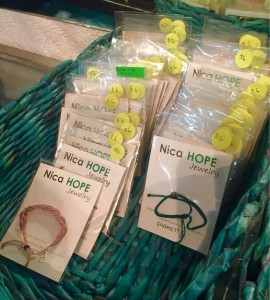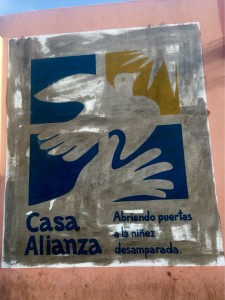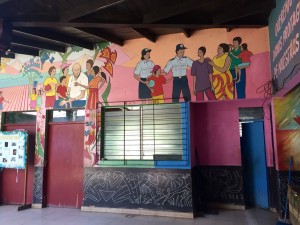We have been in Nicaragua for a little over a week now, and as a group we have certainly been able to develop a small understanding of the culture that Nicaraguans live on a daily basis. Individually, these days abroad have given way to a variety of emotions. We find ourselves reflecting upon each agency, speaker, community member, client, or child, after every encounter. In this blog, we would like to emphasize the importance of community development, which was found to be central in the majority of the organizations we visited.
This idea of community development or family support, as some of the agencies called it, is crucial when it comes to seeing success in the programs that are implemented. Below we chose four organizations that not only impressed us, but also functioned very well due to the focus on community.
NicaHOPE, is an organization where community development was very prevalent. This organization offered a variety of programs and services to individuals who lived in the community of La Chureca. La Chureca is also known as the Managua city dump. This program was very inspiring in that its educational programs helped to motivate teenagers living in the impoverished neighborhoods to stay in school and learn techniques that would enable them to create an income for themselves, as well as their family. Since many of them are living in very poor conditions, they face the reality of drugs, prostitution, and domestic violence. This program allows for their clients to learn technical skills in their computer lab, be fed a hot meal provided by the foundation, and even learn how to craft jewelry of their own. Our group was able to interact with a woman who was previously on the streets and now serves as a teacher at the organization providing other young teens with skills that could alleviate the cycle of poverty. We even had the opportunity to purchase some of the jewelry that they created.
Casa Alianza is an organization that was founded on the premise of housing, feeding, rehabilitating, and reintegrating teenage victims of abuse, addiction, homelessness, or often all of the above back into society. The shelter thrives under individualized, long-term programs to not only protect at-risk youth, but aid in the process of their recovery for years to come. Casa Alianza is a branch of The Covenant House that promotes community development in more ways than one. Counseling services between the child and family are a large factor in to successfully transitioning the victim back in to everyday life after their program has completed. Various staff members go out in to the neighborhoods to rescue endangered children and give information to those in the community.
Los Pipitos is an organization made up of parents, relatives, and friends of children with disabilities. They work in solidarity in order to help improve the lives of the disabled and to protect their rights and dignity. They strive to integrate these children into the community and to be self-sustaining. In Nicaragua, there are a limited number of organizations that focus solely on aiding citizens whom have a physical handicap (the government itself provides very little support/funding to these programs as well). Los Pipitos emphasized how providing services to a child with disabilities was not just a responsibility for them, but mainly for the family or guardian. The organization would first assess the child and then begin immediately working with the family on ways to provide for their child. They offered the client support group sessions where they could grieve and also celebrate together as they did not want these families to feel like taking care of their child was always such hard work. If a child was also capable of functioning independently, they would teach them how to cook, how to clean, how to cooperate with others, and even would help them not only get a job but maintain it.
Community development at La Casona is a key factor in to the success of the societal reintegration process for the inmates at this facility. The stigma associated with men or women that have been incarcerated is an incredibly difficult obstacle to overcome emotionally and in the workplace. Social work students at UNAN in León along with the coordination of the Juvenile Issues Office of the Police Department partner with La Casona to work with people that are going through the program to help them transition back in to everyday life without falling victim to former criminal activities. The inmates have long days involving various therapeutic/stress-relief sessions and even interact with the young children at the educational program the facility offers. It is important to recognize that this type of arrangement is only offered to men or women that have prison sentences of less than 5 years, as anything more would probably not be possible. This organization promotes the art of theatre as a means of expression and a way to help the inmates feel as though they are doing something positive. The theatre group goes out into the community and performs for various groups. This not only benefits the incarcerated men or women, but helps alleviate the negative connotation often tied to those in prison.
Although the infrastructure of these organizations differ between Nicaragua and the United States, the same principles prevail. Human rights and community development are necessary sectors in today’s society. It is disheartening to see social workers or social justice advocates in this country have such a passion for change, but simply do not have the resources to reach the scope that they desire. When returning back home to Ohio, we can only hope that we can further advocate on behalf of these organizations’ missions to promote social justice.
“I alone cannot change the world, but I can cast a stone across the waters to create many ripples.” – Mother Theresa
Until next time, adios!
– Lauren and Abby



